Iran Says Some Of Its Demands Not Yet Considered In Vienna Talks
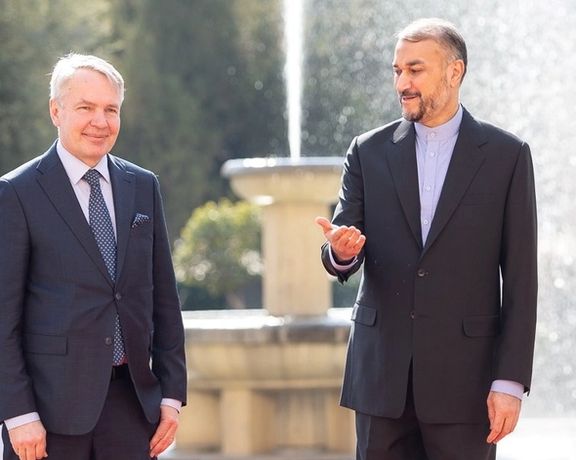
Iran says some of its demands for removal of sanctions have not been considered yet in the Vienna talks to revive the 2015 nuclear deal.

Iran says some of its demands for removal of sanctions have not been considered yet in the Vienna talks to revive the 2015 nuclear deal.
During a joint press conference with his Finnish counterpart Pekka Haavisto in Tehran on Monday, Foreign Minister Hossein Amir-Abdollahian said, “In the latest texts obtained from the Vienna talks, parts of our demands for the lifting of sanctions have not yet been addressed.”
He said the Iranian negotiating team will focus on a document agreeable by all parties in the upcoming sessions of the Vienna talks, scheduled to restart on Tuesday, calling on all the parties to show determination about reaching an agreement.
Earlier in the day, other officials reiterated demands for removal of all ‘maximum pressure’ sanctions imposed since 2018.
The head of Iran’s national security council, Ali Shamkhani, said an agreement that won’t lift all sanctions cannot be the basis of “a good deal”, while foreign ministry spokesman Saeed Khatbzadeh reiterated that lifting of sanctions is Iran’s "red line".
‘Maximum pressure’ refers to around 1,500 sanctions imposed by former president Donald Trump, who withdrew from the 2015 Iran nuclear agreement (JCPOA), but a majority are sanctions on Iranian officials, individuals and companies for reasons other than the nuclear program. Sanctions were imposed for human rights violations, support for terror groups, violation of banking and export laws, money laundering and similar offences.
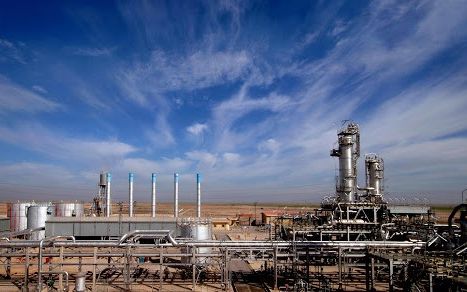
Signs that talks between US and Iranian officials may succeed could lower oil prices, traders said, after US and Brent crude reached multi-year highs on Friday.
If agreement is reached in Vienna to revive the 2015 nuclear agreement (JCPOA) with Iran and the United States lifts sanctions, it could boost oil shipments, adding about one million barrels a day to global supply.
Oil prices have risen sharply in past few months, nearing the important $100 pb threshold not seen since November 2014.
"There has been speculation that this rally was going to encourage some sanctions relief and get more Iranian oil on the market," John Kilduff, partner at Again Capital LLC in New York told Reuters.
On Friday, the United States restored sanctions waivers allowing international nuclear cooperation with Iran on projects designed to make it harder for Iran's nuclear sites to be used to develop weapons.
"President (Joe) Biden still wants us to negotiate in Vienna ... That's a symbol or a sign of our continued belief that it is not a dead corpse, that we need to revive it because it is in our interest," Rob Malley, U.S. envoy for Iran, told MSNBC Sunday night.
Iran on Monday demanded full removal of all sanctions imposed since 2018 when for US president Donald Trump withdrew from JCPOA.
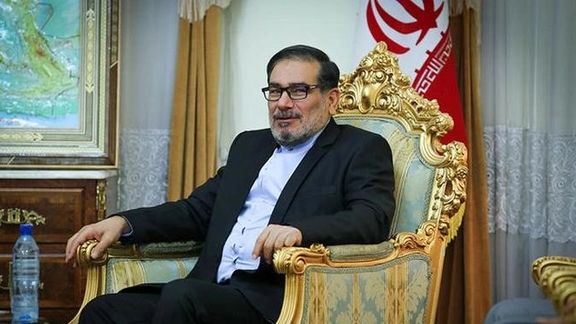
Iran nuclear talks are set to resume this week as Tehran on Monday reiterated its demands for removal of all ‘maximum pressure’ sanctions imposed since 2018.
"An agreement in which the sanctions that form the maximum pressure are not lifted will condition the country's economy and cannot be the basis of a #GoodDeal," Ali Shamkhani the head of Iran’s national security council tweeted on Monday.
Iran's foreign minister Hossein Amir-Abdollahian also said on Monday, "In the latest texts obtained from the Vienna talks, part of our demands for the lifting of sanctions have not yet been addressed."
‘Maximum pressure’ refers to all sanctions imposed by former president Donald Trump, who withdrew from the 2015 Iran nuclear agreement (JCPOA). While Iran has been demanding their removal as a strict condition to restore the deal, the US expressed willingness to lift only nuclear sanctions.
Trump imposed around 1,500 sanctions on Iran since May 2018, but a majority are sanctions on Iranian officials, individuals and companies for reasons other than the nuclear program. Sanctions were imposed for human rights violations, support for terror groups, violation of banking and export laws, money laundering and similar offences.
The Biden Administration has signaled its readiness to lift oil export sanctions and possibly banking restrictions that have crippled Iran’s economy, in exchange for Iran ending steps it has taken in the past two years to expand its nuclear program.
Iran’s foreign ministry spokesman Saeed Khatbzadeh in his Monday morning weekly briefing told reporters that Tehran expects the US to return to the Vienna talks “having made the necessary decisions in regards with sanctions and the economic dimensions of the JCPOA.” He reiterated that lifting of sanctions is Iran’s "red line".
However, US chief negotiator Robert Malley told MSNBC on Friday that the two sides have not agreed on key issues, such as which US sanctions should be lifted and what it means for Iran to return to JCPOA.
Malley said that US is willing to lift “most sanctions” imposed since 2018, but some were imposed for “Iran’s behavior” and are not related to the nuclear issue.
This statement shows that the most critical questions remain unresolved. Iran has ramped up its uranium enrichment and has amassed a considerable amount of fissile material, cutting its breakout time to build a bomb to a few weeks. It has also deployed thousands of advanced enrichment machines banned by the JCPOA. The question whether Tehran is willing to give up all its advances remains unclear and the issue of which US sanctions to lift is also undecided.
Ten months of diplomacy without a tangible result has raised criticism of how far the Biden Administration is willing to wait. Robert Malley, the US chief negotiator said Sunday that he is heading back to Vienna to resume indirect talks with Iran, insisting that there is still hope to revive the JCPOA. "We'll come back next week. That's a symbol or a sign of our continued belief that it is not a dead corpse - that we need to revive it because it is in our interest."
Khatibzadeh sounded defiant in his briefing when he said, “Iran pursues a good and reliable agreement, and the American government should pay for [leaving] JCPOA and violating the United Nations resolution 2231.”
The spokesman was referring to the UN Security Council Resolution that put a seal of approval on the 2015 nuclear agreement and removed international sanctions in 2015 after Tehran agreed to curb its nuclear program.
US President Joe Biden on Sunday spoke with Israel's Prime Minister Naftali Bennet and discussed the Iran nuclear deal. Israel opposes any agreement that would not permanently bar Iran from obtaining nuclear weapons. Bennet said he and Biden discussed ways to halt Iran's nuclear program.

Two days after the US waiver of sanctions on some of Iran's nuclear activities, officials in Iran resumed defiant remarks on talks with the United States.
Vahid Jalalzadeh, the chairman of the Iranian parliament's National Security and Foreign Relations Committee said on Sunday, that the offer of an interim agreement is no longer on the tablein Vienna. Meanwhile, in an odd comment, he added that the Vienna talks are aimed at "punishing the United States," adding, "We are keeping them behind the door."
The Biden Administration agreed early last year to hold indirect talks with Iran in Vienna on restoring the 2015 nuclear deal (JCPOA), while the other original signatories of the agreement hold official negotiating sessions without the US.
Jalalzadeh boasted that the US delegation's presence at the negotiating table depends on Iran's permission. He also denied that a new agreement is being forged in Vienna. "Iran is committed to fulfil its obligations under the 2015 agreement and the other side also needs to do so. That is what we are discussing in Vienna," the senior lawmaker said.
Although he emphasized Iran's commitment to its obligations, the lawmaker admitted that Tehran has boosted its nuclear capabilities.
Eralier, the spokesperson for the foreign ministry, Saeed Khataibzadeh, had said that the sanction waivers offered by the United States were "insufficient," and Foreign Minister Hossein Amir-Abdollahian reiterated that the US move was "good," but Tehran wishes to see "tangible results,” meaning lifting of sanctions.
Supreme Leader Ali Khamenei who has the final say about all matters in Iran said last year that Iran wants the verifiable removal of all sanctions, including those imposed by former US President Donald Trump after he withdrew from the JCPOA in 2018.
Another lawmaker Malek Shariati said on Sunday if the US lifts the sanctions, the verification will take between 3 to 6 months, but Iran is in no hurry to reach an agreement. He stressed that "all" US sanctions need to be lifted.
Washington has indicated that it will lift all nuclear-related sanctions imposed by Trump but not sanctions imposed for reasons related to Tehran’s “behavior.”
Iranian officials, including parliament member Jalazadeh insist that all sanctions since 2018 are in reality nuclear related and must be removed.
In another development on Sunday, Security Chief Ali Shamkhani said, "We are still far away from a balance in the two sides' commitments to the 2015 nuclear deal." He wrote in a tweet: "Political decisions in Washington are required to strike a balance that would lead to a good agreement."
Shamkhani had said in an earlier tweet: "Real, effective and verifiable benefit for Iran is the condition for an agreement to take shape in Vienna. A show of lifting the sanctions will not be regarded a constructive measure."
In the meantime, concern expressed on Saturday by the UN nuclear watchdog, the IAEA,about traces of "undeclared nuclear material" found in some of Iran's nuclear sites have made Iran's dossier more complicated. However, some Iranian sources quoted IAEA Chief Rafael Grossi as having told reporters that "reaching an agreement in Vienna is not impossible.”
Majid Mottaghifar, the spokesman of the ultraconservative Paydari Party which has always opposed the nuclear deal, said on Sunday that his group now supports the negotiations. He said: "It is now in the interest of the regime to further the nuclear negotiations. Some 30 seasoned Iranian diplomats are in the negotiating team who can conduct the talks in a calculated approach."
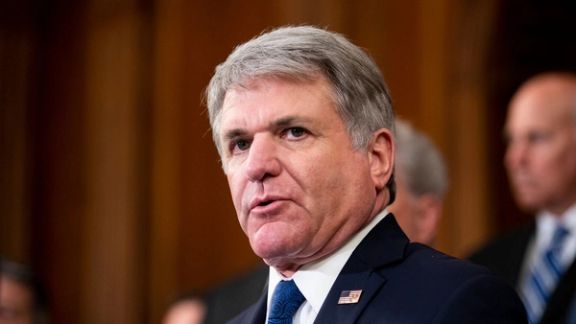
Republican Representative Michael McCaul has said that the US waiver of some sanctions on Iran’s nuclear program shows Washington is reaching a deal with Tehran.
The twitter account for the House Committee on Foreign Affairs quoted McCaul Saturday as saying that the Biden administration “is preparing to cut a nuclear deal with Iran that would be worse than the original JCPOA”.
“We already know Iran will enter any new deal closer to amassing enough fuel for a nuclear weapon than it was under the JCPOA”, the Texas representative said.
Earlier On Friday, State Department spokesperson Ned Price said the waiver was not a sanctions relief and emphasized that the US will not provide sanctions relief to Tehran before it returns to its commitments under 2015 nuclear deal.
President Joe Biden's administration restored the sanctions waivers to allow international nuclear cooperation projects, drawing congressional criticism on the administration’s Iran strategy.
The waivers allow Russian, Chinese and European companies to continue cooperating with Tehran's non-proliferation projects including electricity generation at Bushehr nuclear power plant, Arak heavy water production facilities, and the Tehran Research Reactor. The Trump administration which pulled out of the JCPOA in May 2018 rescinded the waivers in 2019 and 2020 as part of his "maximum pressure" campaign.
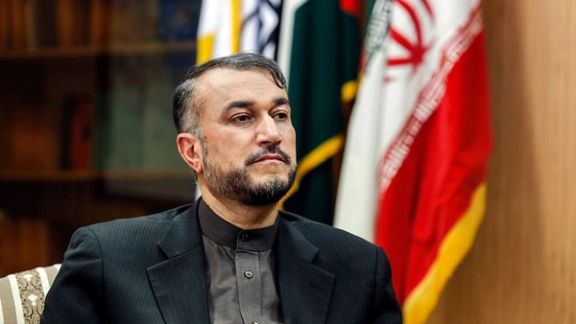
Iran's foreign minister reiterated Sunday that the US move to waive some sanctions was good, but Iran wants to see tangible results and lifting of sanctions.
In an interview with the state-run television (IRIB), Hossein Amir-Abdollahian reiterated that executive orders or actions that restore the conditions to what they were before the US withdrew from the 2015 nuclear deal -- Joint Comprehensive Plan of Action (JCPOA) -- are considered as positive by Iran but what matters to Iran is seeing action from the American side, not "what happens on paper".
"For us it is important to see, tangibly and factually, the result of US moves in lifting the sanctions," he said, adding that so far Iran has not seen "serious and considerable initiatives" from the US side. "Initiative to us means what is observable in the talks with the 4+1 (France, Germany, Britain, Russia and China) in the non-papers exchanged between Iran and the US through the EU or when we can see some of the sanctions lifted in practice," he said.
Britain, France and Germany on Saturday urged Iran to grab the opportunity provided by the US move to restore the 2015 nuclear deal.
“This should facilitate technical discussions necessary to support talks on JCPOA return in Vienna,” negotiators of the European Troika said in a joint statement Saturday.
“We urge Iran to take quick advantage of this opportunity, because the timing of the waiver underscores the view we share with the US: we have very little time left to bring JCPOA talks to a successful conclusion.”
The EU foreign policy chief Josep Borrell said in a tweet Saturday that he had held an important call with Amir-Abdollahian ahead of the resumption of talks. "We need good faith, efforts from all sides, and a spirit of compromise to swiftly conclude the negotiations and go back to full implementation of the JCPOA," Borrel said.
According to state-run Press TV, in his phone talk with Borrell, Amir-Abdollahian reiterated that positive developments have taken place since the last round of negotiations in Vienna, but said such developments still fall short of meeting Iran's expectations.
The waivers allowed Russian, Chinese and European companies to continue cooperating with Tehran's non-proliferation projects including electricity generation at Bushehr nuclear power plant, Arak heavy water production facilities, and the Tehran Research Reactor. The Trump administration which pulled out of the JCPOA in May 2018 rescinded the waivers in 2019 and 2020 as part of his "maximum pressure" campaign.
The eighth round of Vienna talks broke on January 8 and negotiators returned to their capitals for consultations. Talks are expected to resume next week.
The Russian envoy to the talks in Vienna, Mikhail Ulyanov described the US decision to restore the nuclear waivers as "a move in the right direction" and said it would help expedite restoration of JCPOA and mutual return of US and Iran to compliance with 2015 deal. "It also can be seen as an indication that the Vienna talks have entered the final stage,”, he wrote on Twitter.
"Some believe that the move by the Biden administration is in fact in line with the White House's ‘blame game’ and cannot have positive effects on Iran's economy," Iran's state-funded Mehr News Agency said Sunday.
The Biden administration's decision raised a barrage of criticism from critics as a concession to Iran. A senior State Department official familiar with the waivers told the Associated Press Saturday that the move was not a “concession”, nor was it a signal that the US was about to reach an understanding on a mutual return to full implementation of the JCPOA.